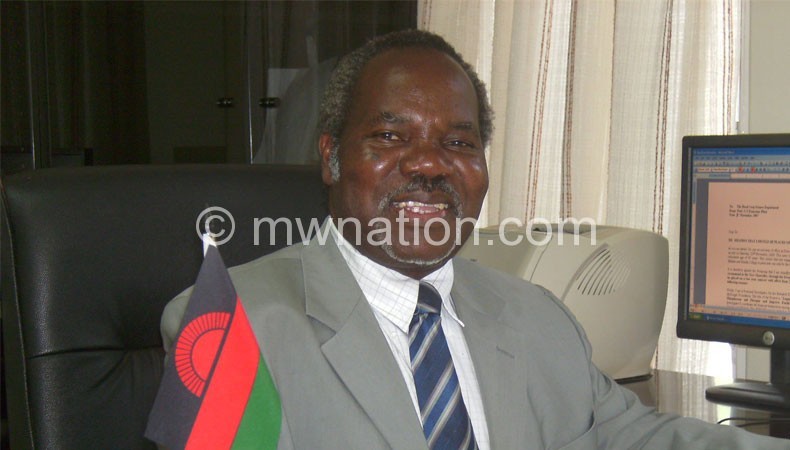‘Unima unbundling may take 10 years’
If the process begins today to unbundle the University of Malawi (Unima), to make the four colleges under it standalone universities, it may take at least the next decade to complete the exercise, a respectable academician has said.
Professor George Kanyama Phiri, former vice-chancellor at the Lilongwe University of Agriculture and Natural Resources (Luanar), supported the unbundling proposal in an exclusive interview this week.

Kanyama Phiri, in response to a questionnaire, said colleges under Unima, such as The Polytechnic and College of Medicine (CoM), have great potential and capacity to become stand-alone universities. He said: “I see at least three with the capacity to stand alone. The first ones in the forefront of becoming independent are College of Medicine and Polytechnic, leaving Chancellor College to remain as the major campus of Unima.”
Kanyama said the process to unbundle may take 10 years based on the example of Luanar—formerly Bunda College of Agriculture—which delinked from Unima and merged with Natural Resources College (NRC).
Bunda College was only delinked in 2011 after plans by president, the late Bingu wa Mutharika, in 2009, to make all Unima colleges stand-alone universities failed.
The delinking was effected in the National Assembly, after members passed the University of Malawi Amendment Act.
Kanyama Phiri said if Unima is successfully unbundled, it would make the constituent colleges more efficient and less bureaucratic than is the case now.
“As indicated earlier, a degree of autonomy will allow colleges to make independent decisions faster than is the case now,” he said.
Kanyama Phiri said he did not think the number of professors for each college could be the criteria for becoming a stand- alone university, saying in any case, all Unima colleges already have a critical mass of professors.
Other international standards that are required to make an institution qualify as a standalone university, according to Kanyama Phiri, include quality assurance standards; a compliment of staff who distinguish themselves through research and publications; ability to attract donor funding and accreditation and ranking at local, regional and global levels.
Mangani Katundu, a senior lecturer in Food Security and Nutrition at Chanco, agreed with Kanyama Phiri, in an interview, that Chanco and the rest of Unima colleges have adequate staffing levels if they were to be unbundled.
He said the only challenge that would come, with what he preferred to call ‘secession’ as opposed to ‘unbundling’, is that colleges under Unima were designed in a way to complement each other.
Katundu, however, said that was not a big problem because Chanco already is relatively complete and it has land and, therefore, an opportunity to expand.
“If the colleges become independent universities, I see an opportunity where students would choose where to go for one course because the colleges would be forced to bring different programmes also offered by other universities and that would bring competition,” he said.
The Polytechnic has only two professors and two assistant professors, but one lecturer at the college, who opted not to be named, agreed with Kanyama Phiri that the number of professors do not count as a qualification for a stand-alone university.
The lecturer said: “The programmes we run here are more technical in which even the world over, the highest qualification you would get is a PhD.”
He said one of the problems The Polytechnic may face, if Unima is unbundled, may be infrastructure, arguing that the college had the capacity academically and enough room for expansion.
He said unbundling would mean growth of the education sector and the individual universities, blaming the University Central Office of growing cold feet on the issue of unbundling because the office bearers loved the bureaucratic Chancellor College Academic Staff Union (Ccasu), said this change is inevitable because the current federal structure has outlived its usefulness and is an obstacle to growth.
Other education experts have observed before that the unbundling, while it was a good direction to take, may come with its own teething problems such as need for enterprising and forthright leadership. The experts observed that there may also be the need for policy oversight so that the colleges do not turn a blind eye on their prior mandate.
The experts observed that while Luanar, which was delinked from Unima was progressing in terms of funding, research and programming, Unima colleges were still stuck in the past and it was difficult for various departments under them to grow their programming and produce advanced degrees at masters’ and doctoral levels due to the long-standing problems of bureaucracy.
The experts have suggested that once unbundled, Unima Council and National Council for Higher Education (Nche) need to merge into one policy oversight institution that would work with the Ministry of Education, Science and Technology in providing policy guidance, ensuring quality assurance, and promoting networking and learning across public universities.
Civil Society Education Coalition executive director Benedicto Kondowe said in an interview on Friday, that the merging of Unima Council and Nche, as suggested by other experts, was one brilliant idea authorities must take seriously.
Kondowe said the unbundling would help to deal with persistent problems such as lack of harmonisation of university calendars and frequent closures of universities due to student riots and staff strikes.





